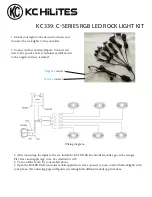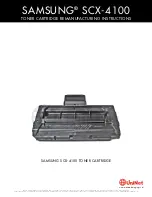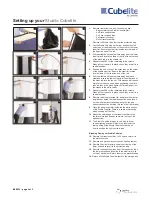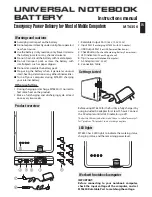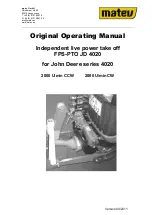
EN
107
CAUTIONS
MultiMediaCards
To properly use and store your MultiMediaCards, be
sure to read the following cautions:
1. During use . . .
... make sure the MultiMediaCard bears the
MultiMediaCard mark.
... make sure the MultiMediaCard is positioned
properly when inserting.
2. While the MultiMediaCard is being accessed (during
recording, playback, deletion, initialisaion, etc.) . . .
... never unload the MultiMediaCard and never turn
off the camcorder.
3. Store MultiMediaCards . . .
... away from heaters or other heat sources.
... out of direct sunlight.
... where they won’t be subject to unnecessary shock
or vibration.
... where they won’t be exposed to strong magnetic
fields (such as those generated by motors,
transformers or magnets).
LCD Monitor
1. To prevent damage to the LCD monitor,
DO NOT . . .
... push it strongly or apply any shocks.
... place the camcorder with the LCD monitor on the
bottom.
2. To prolong service life . . .
... avoid rubbing it with coarse cloth.
3. Be aware of the following phenomena for LCD
monitor use.
These are not malfunctions:
• While using the camcorder, the surface around the
LCD monitor and/or the back of the LCD monitor
may heat up.
• If you leave power on for a long time, the surface
around the LCD monitor becomes hot.
Main Unit
1. For safety, DO NOT . . .
... open the camcorder’s chassis.
... disassemble or modify the unit.
... short-circuit the terminals of the battery pack.
Keep it away from metallic objects when not in
use.
... allow inflammables, water or metallic objects to
enter the unit.
... remove the battery pack or disconnect the power
supply while the power is on.
... leave the battery pack attached when the
camcorder is not in use.
2. Avoid using the unit . . .
... in places subject to excessive humidity or dust.
... in places subject to soot or steam such as near a
cooking stove.
... in places subject to excessive shock or vibration.
... near a television set.
... near appliances generating strong magnetic or
electric fields (speakers, broadcasting antennas,
etc.).
Battery Packs
The supplied battery pack is a
lithium-ion battery. Before using
the supplied battery pack or an
optional battery pack, be sure to
read the following cautions:
1. To avoid hazard . . .
... do not burn.
... do not short-circuit the terminals.
... do not modify or disassemble.
... do not expose the battery to temperatures
exceeding 60°C (140°F), as this may cause the
battery to overheat, explode or catch fire.
... use only specified chargers.
2. To prevent damage and prolong service life . . .
... do not subject to unnecessary shock.
... charge in an environment where temperatures are
within the tolerances shown in the chart below. This
is a chemical reaction type battery—cooler
temperatures impede chemical reaction, while
warmer temperatures can prevent complete charging.
... store in a cool, dry place. Extended exposure to
high temperatures will increase natural discharge
and shorten service life.
... fully charge and then fully discharge the battery
every 6 months when storing the battery pack
over a long period time.
... remove from charger or powered unit when not in
use, as some machines use current even when
switched off.
NOTES:
●
It is normal for the battery pack to be warm after
charging, or after use.
Temperature Range Specifications
Charging ................... 10°C to 35°C (50°F to 95°F)
Operation ................. 0°C to 40°C (32°F to 104°F)
Storage ...................... –10°C to 30°C (–14°F to 86°F)
●
Recharging time is based on room temperature of 20°C (68°F).
●
The lower the temperature, the longer recharging takes.
Cassettes
To properly use and store your cassettes, be sure to read
the following cautions:
1. During use . . .
... make sure the cassette bears the Mini DV mark.
... be aware that recording onto prerecorded tapes
automatically erases the previously recorded
video and audio signals.
... make sure the cassette is positioned properly
when inserting.
... do not load and unload the cassette
repeatedly without allowing the tape to run at all.
This slackens the tape and can result in damage.
... do not open the front tape cover. This exposes the
tape to fingerprints and dust.
2. Store cassettes . . .
... away from heaters or other heat sources.
... out of direct sunlight.
... where they won’t be subject to unnecessary shock
or vibration.
... where they won’t be exposed to strong magnetic
fields (such as those generated by motors,
transformers or magnets).
... vertically, in their original cases.
Terminals





















